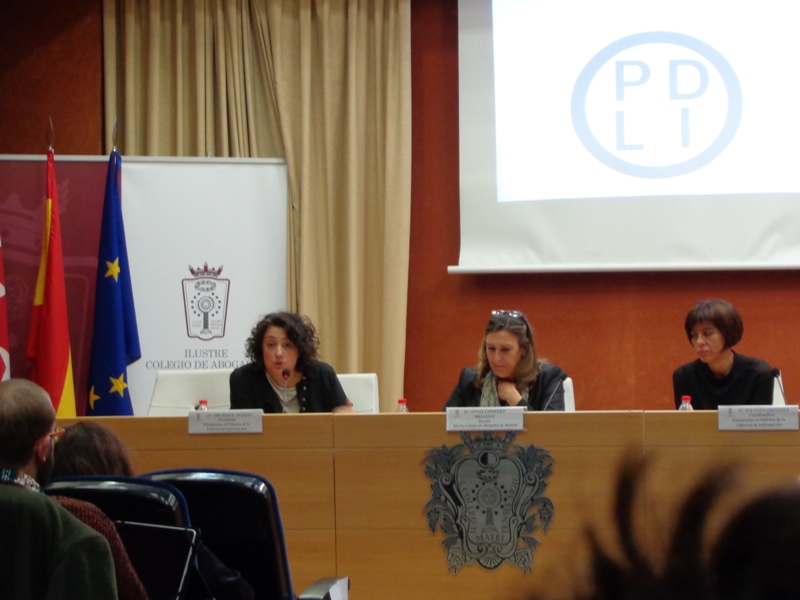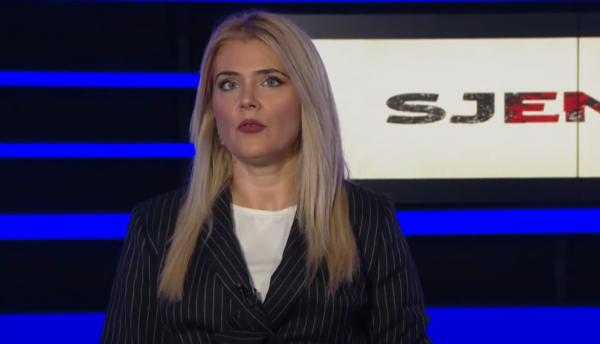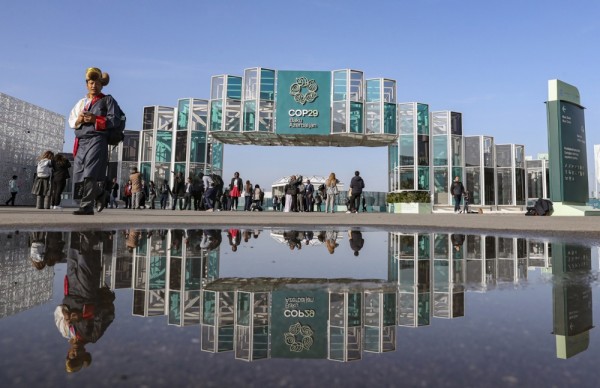A diverse group of journalists, activists lawyers, academics, activists and consumer advocates converged yesterday in downtown Madrid for the official launch of the Platform for the Defence of Freedom of Expression (Plataforma en Defensa de la Libertad de Información), a new civil-society coalition that observers hope will fill an advocacy and monitoring gap in Spain.
Making reference to a period of “profound change” in the country due to the current economic crisis, Platform President Virginia P. Alonso, deputy editor of 20 Minutos, described the initiative as a response to “efforts to curb new forms of protest and to put a stop to freedom of expression through the approval of restrictive laws and norms”.
A primary aim of the Platform, she told the International Press Institute (IPI), would be to “catalogue attempts to curtail freedom of expression and information and disseminate them, so they become present in the collective consciousness”.
Over 20 groups and individuals have officially joined the Platform, including the Madrid Bar Association, which hosted Tuesday’s event and whose dean, Sonia Gumpert, will serve as the Platform’s vice president.
Gumpert told the audience that the Bar Association was “highly conscious” of the legal profession’s role in defending human rights and the rule of law and had agreed to help found the Platform without hesitation. “Freedom of expression”, she said, “is an indispensable pillar in our society for the correct exercise of the rest of our rights.”
Other members include the Progressive Union of Prosecutors, the Federation of Journalist Syndicates (FeSP), the Organisation of Consumers and Users (OCU) and the newspapers Eldiario.es and 20 Minutos.
Speaking at the launch, Platform Secretary General Yolanda Quintana emphasised the plurality of entities taking part. “It is not just journalists and media outlets that can be the victims of attacks against freedom of expression,” she said.
Panellists broached a wide range of topics considered to threaten freedom of expression in Spain, including a pending “public safety” bill, popularly known as the Ley mordaza, that opponents fear would criminalise legitimate acts of protest; the abuse of defamation and insult laws; lack of transparency in public administration and what some consider to be a “pseudo” transparency taking effect this month; the abuse of government advertising; and the weight of media ownership, particularly in a time of economic crisis.
The launch of the platform coincides with the first international press freedom mission to Spain, taking place this week and led by IPI. Mission participants, including representatives from Access Info Europe, Reporters without Borders (RSF), the World Association of Newspapers and News Publishers (WAN-IFRA), the European Federation of Journalists (EFJ), the Committee to Protect Journalists (CPJ) and the Open Society Foundations (OSF), have been meeting with a wide variety of stakeholders in Madrid and Barcelona to understand current, key challenges to freedom of expression in Spain.
Numerous observers with whom the mission met spoke of a lack of monitoring of freedom of expression issues in Spain, which, according to some, led to a mistaken impression that the country was not facing any challenges with respect to such issues.
Commenting on IPI’s perception of the press freedom landscape in Spain at yesterday’s launch, IPI Deputy Director Barbara Trionfi noted that “the current situation appears rather problematic for country with a long democratic tradition such as Spain”.
Nevertheless, she highlighted a number of recent online journalism platforms that have successfully emerged in recent years as providing “clear evidence that journalism in Spain is reinventing itself in order to be able to fulfil its function in a democratic society”.
Trionfi welcomed the Platform’s “entrance into this new journalistic reality to address the challenges this reality faces” and she offered IPI’s support to the group’s work.
This article was updated on Dec. 10, 2014 to reflect the official English translation of the Madrid Bar Association and to insert comments from the Bar Association’s dean and vice-president of the Platform.



